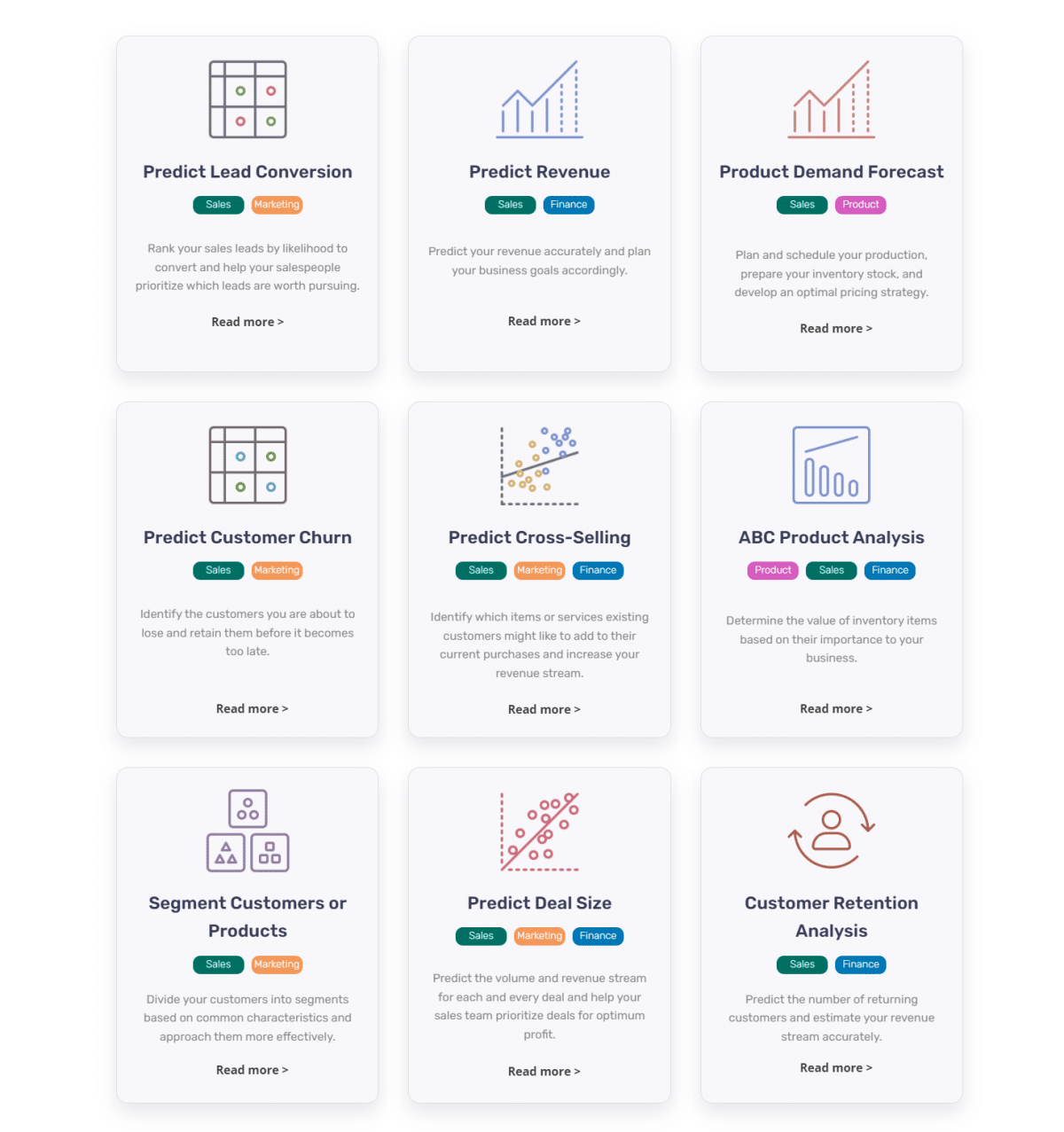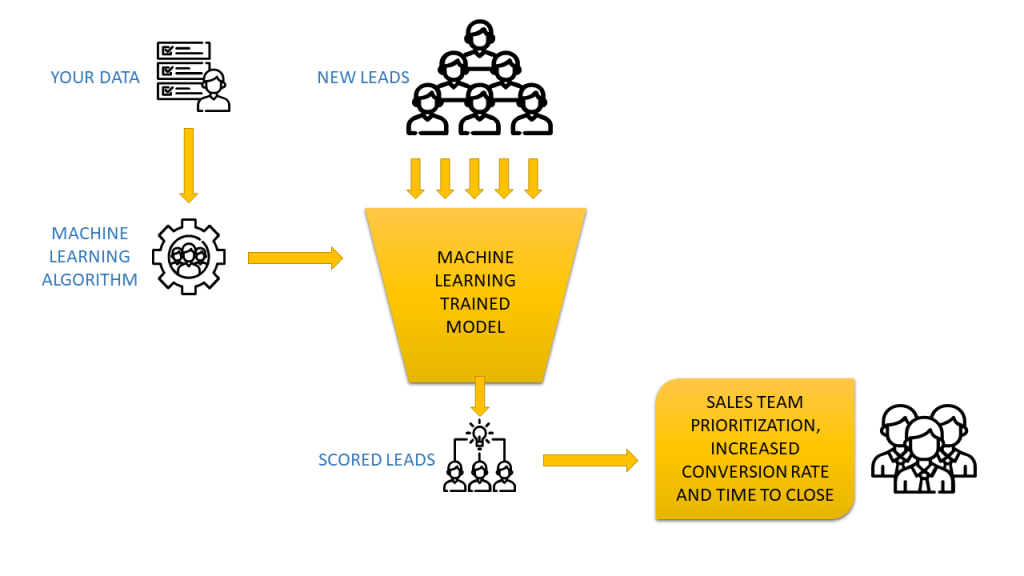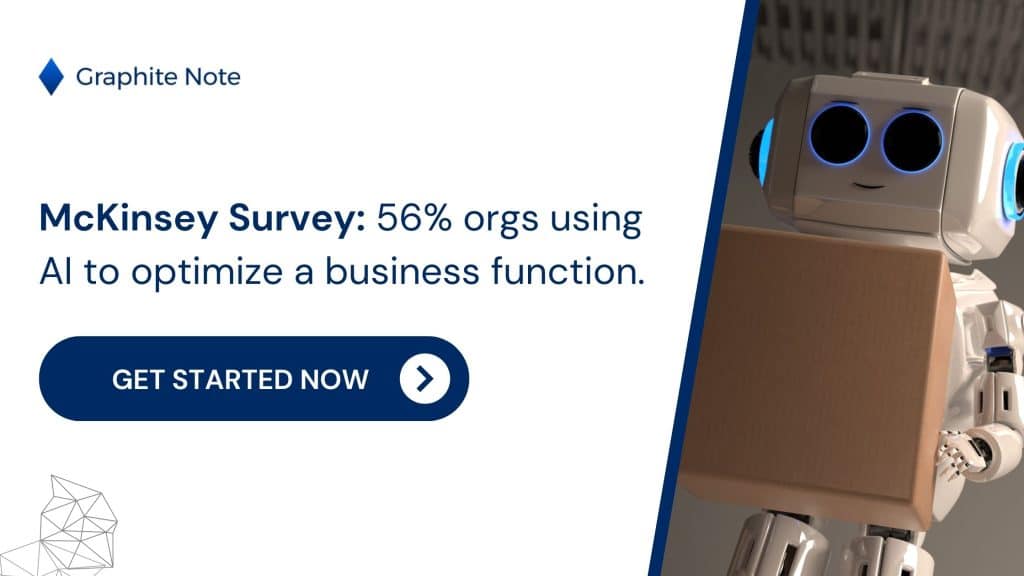Introduction
The arrival of Artificial Intelligence in the business world is highly transformative. Thanks to AI, businesses can now make better informed strategic decisions. An AI business can boost their efficiency, reduce costs and improve customer service. AI could be the answer if you’re looking to take your business to the next level. Is your business ready for AI? AI adoption is not a one-stop process. AI adoption for your business is a strategy that needs close consideration.
Artificial Intelligence (AI) is used to describe the development of robust computer systems. These computer systems can think and react like a human. AI technologies can learn, analyze, adapt and make decisions. AI tools can do this based on the available data. AI tools use machine learning algorithms to classify objects and identify patterns. AI systems can then use this data to make decisions quickly. This reduces the need for human input. AI technology encompasses various tools and techniques. These enable machines to simulate human intelligence. These technologies can analyze data, learn from patterns, and make predictions or decisions. There’s a broad range of AI technologies available for businesses. These include natural language processing, computer vision, machine learning algorithms, and robotics. Each technology offers unique capabilities. AI tools can improve business operations and automate tasks. AI platforms can also improve decision-making, and enhance customer experiences. AI solutions come in various forms, from pre-built software applications to custom-developed models. The best solution for your business depends on your specific goals and resources. There are various fields of AI that you may want to consider in your AI adoption journey. For example, generative AI is a subfield of AI focused on creating new content, like images or text. Another type of machine learning is deep learning. Deep learning uses artificial neural networks to learn from data. While deep learning is a powerful technique, it’s not the only approach used in AI for business.

Benefits of Implementing AI
AI-based solutions are rapidly being adopted across the business world. AI systems can automate mundane tasks. AI platforms can be used to increase customer satisfaction and discover growth opportunities. AI can also help to improve safety and decrease costs. AI tools can help you increase customer loyalty and agility. Machine learning tools help you gain actionable insights from your customer data. AI solutions enable businesses to access massive amounts of customer data in real time. This helps you to focus on the customers you need to reach. You’re better equipped to prioritize your activities and operations. More and more business leaders are looking to AI to solve business problems and automate business processes.
How Do You Know If Your Business Is Ready For AI?
There is no one-size-fits-all answer when it comes to determining if your business should implement an AI solution. Several indicators indicate that your business is ready for AI. AI can be a source of business ideas, as companies explore new ways to leverage this technology. AI itself is not a business idea, but rather a tool that can be used to develop new products or services. There are four indicators that highlight if your business is ready for AI:
- Comprehensive data collection: You have a comprehensive data collection process in place. The process produces high-quality customer data that can be used to inform decisions.
- Your organizational infrastructure: Your organization’s current infrastructure and business processes are compatible with AI-based solutions.
- Your data is secure: You also need to consider the data security and ethical considerations around adopting AI. Responsible AI is an ethical consideration that focuses on developing and using AI in a way that is fair, unbiased, and transparent.
- Your team: Your employees are ready to be trained on how to use and benefit from AI technology.
Preparing Your Business for AI
Successfully integrating AI into your business operations requires careful planning and execution. Business leaders play a key role in deciding how and where to implement AI in their organizations. They need to understand the potential of AI and make informed decisions about its use. Importantly too, focusing on responsible AI adoption will augment the adoption process. You need to identify specific needs, choose the right AI solutions, collect and prepare data, train models, and integrate AI with existing systems.
Data is the fuel that powers machine learning algorithms. Your data collected will affect your AI adoption results. The quality of your data will affect the accuracy and effectiveness of the AI applications. While data analysis is key, the quality of data collected is paramount. When it comes to collecting data, most businesses already have some data on hand. To know what data to focus on, you’ll need to consider the expected outcomes of the AI-enabled applications. Leveraging a range of data is the primary input source for successful AI applications. Consider using your customer survey responses, user behavior, sales records, and pricing data.
The second part of preparing your business for AI is structuring and analyzing the data. To make this easier, you must create an organized data storage and retrieval system. Storage tools like data warehouses and data lakes can help to store the data. This also streamlines data retrieval and data analysis. Big data analytics are then used to quickly process and interpret the data. The analysis helps to identify patterns and trends that can provide actionable insights.The data in your business is the foundation for successful AI applications. Focus on data quality in data collection. Then, focus on structuring and analyzing your data for an efficient outcome. Further, focus on data analysis. Data analysis is a crucial step for any AI application. Data analysis involves collecting, cleaning, and preparing data. Data analysis enables machine learning algorithms to extract meaningful insights.

What New Knowledge Do Your Staff Need?
When implementing artificial intelligence (AI) into a business, your team is an important part of the equation. As AI grows in prevalence, it’s essential to understand the new skills and knowledge your team needs to implement AI into existing processes. In reality, these are far more than just technical skills. They’re a combination of digital and soft skills.
To start, you must determine what new knowledge your staff needs to use AI successfully. Often, staff with expertise in digital and analytics are ideal candidates. They are highly proficient users of technology. Project management teams are also well suited for AI implementation. These don’t have to be staff who are already familiar with AI. They do need to be team members who have a general curiosity. They need to understand the importance of data and how to interpret it.
When looking to adopt AI, you should also consider the implications of new job roles. These will be created through the implementation of AI. Some positions may require filling. These may include: AI technology management, data scientist, or solution architect. These roles are necessary to successfully implement AI technologies into existing processes.
Staff training and knowledge will play a vital role in the success of your AI implementation. It is crucial to determine what skills and knowledge employees need. You also need to understand the job roles that may need to be filled. By understanding the training and skills required, you can ensure your team is to begin using AI.
New Job Roles In No-Code Machine Learning
With AI technology is quickly evolving. The latest developments come with unique job roles to match. Businesses need to identify the staff with the required skills to take on these roles. You may need to consider hiring data analysts or software engineers. Similarly, your non-technical teams may find a change in their roles. The ‘no-code’ approach simplifies the development process. Employees with a minimal technical background can be actively involved in machine learning. Tools like Graphite Note can auto-generate machine learning models easily. Your business can reap the benefits of cutting-edge solutions.
This doesn’t mean that AI/ML-specific staff are entirely unnecessary. No-code solutions are perfect for those with a non-technical background. Someone with the appropriate technical background is needed to make the most of ML models. Consider the benefits of a multi-faceted team with configuration and troubleshooting support. A combination of technical and non-technical staff is still nice-to-have to ensure the project is successful.
Infrastructure and Costs
Before investing in AI, a business must consider infrastructure needs and potential costs. Artificial Intelligence needs more than just data; it requires proper infrastructure. Frankly, this is the most critical process to ensure the success of an AI project for your company.
When it comes to AI, there are different models depending on what your business needs. Such models include hardware, software, servers, and data storage. Some of these tools will vary in cost and required resources. It is important to correctly figure out how much will be needed and how to use them efficiently. Also, consider the implications these investments may have on overall costs. Similarly, data security is paramount when implementing AI. Businesses need to ensure that customer data is collected, stored, and used responsibly. This ensures your business will maintain trust and comply with regulations. Data security infrastructure must be catered for in your budget.
Technological advancements have led to significant developments in no-code machine learning platforms. This means that those unfamiliar with technical aspects can still develop AI applications. Businesses can use the platforms to create and deploy AI models with no coding required. Companies can save on development costs in implementing AI. This helps you bring down overall costs. You can access and benefit from the AI revolution with minimal investment. Such no-code machine learning platforms are great for businesses of any size. With no-code ML platforms, companies can avoid lengthy coding processes. ML models enable you to take advantage of prebuilt training models, and deploy AI applications faster. There are several significant use cases for an AI business. Use cases are specific examples of how AI can be applied in a business setting. There are numerous use cases across various industries. You can use AI for a range of tasks, from automating marketing campaigns to optimizing supply chains.
Why SaaS Industry Needs AI
Software-as-a-Service (SaaS) is a popular deployment model for businesses. SaaS uses subscription fees and cloud-based architecture. Many companies are turning to SaaS services to outsource their technology needs. SaaS businesses and their users have become more reliant on AI to remain competitive. AI has become a staple in the SaaS market. AI is used to improve customer segmentation and provide personalized experiences.
AI works hand-in-hand with SaaS companies. AI helps SaaS businesses make their processes faster, more accurate, and more reliable. AI enables SaaS applications to offer users a more personalized experience. AI enables SaaS businesses to access insights into customer behavior and user engagement. Using AI, SaaS businesses can optimize personalized marketing and automate manual processes. AI helps SaaS businesses give their users a unique and valuable experience.AI can be used in various ways by SaaS companies. AI can be used for customer segmentation and predictive lead scoring. AI can also provide personalized recommendations for customers. AI can be used for automated customer onboarding. This reduces the risk of customer attrition, while saving valuable time and resources. AI can provide SaaS companies with invaluable insights into user behavior. AI can also help with revenue forecasts. This enables a SaaS business to make intelligent decisions.
Benefits of AI for E-Commerce
Using AI, online businesses can improve their marketing, automation, and customer service approach. Customers then become more engaged with the brand, resulting in a higher ROI. AI can personalize the customer experience. AI can tailor interactions based on individual preferences and past behavior. This can lead to increased customer satisfaction and loyalty.
To understand the full scope of what AI can do for a business, it’s important to identify some benefits. AI-enhanced e-commerce applications can provide personalized recommendations to customers. This makes the shopping experience faster and more tailored to their individual needs. AI can optimize product search, resulting in fewer clicks and time wasted searching. Predictive analytics enables an online store to anticipate customers’ needs. AI can analyze customer data to recommend products or services. This leads to increased customer satisfaction and sales. AI can help to generate highly personalized recommendations for customers. All of this is based on customer historical data. Historical data is past information that can be used to train machine learning models. Businesses can leverage historical data to inform AI applications. Using this data and AI tools can enhance customer relationship management. Customer relationship management (CRM) is a strategy for managing all interactions with customers. AI can enhance CRM systems. AI can personalize communications, automate tasks, and provide data-driven insights.
To get the most out of AI, there are several specific areas of e-commerce where it could be implemented. AI can be used to enable automated product recommendations based on past purchases and user behavior. AI can be used to detect fraud or prevent identity theft. AI enables dynamic pricing, and is used to create natural language-based chatbots. Website personalization is also helped by AI. AI can also help with tracking logistics and managing order processes. AI can also be used for analyzing customer sentiment. All of these tasks can enhance the overall experience of the user. The implementation of artificial intelligence in e-commerce is invaluable for businesses today.

How AI Improves Insurance Efficiency
Insurance companies have begun to embrace AI and Machine Learning technologies. AI helps insurance companies give customers seamless, efficient services. AI can help insurance companies to automate various processes. These include customer service, claims processing, and underwriting. AI also produces insights from large datasets. This can be used to reduce mortality rates, detect fraud and optimize pricing models. AI can be used for fraud detection. AI can analyze data to identify suspicious patterns and prevent fraudulent transactions. This protects businesses and customers from financial losses.
AI technology is transforming the insurance industry. AI enables insurance companies to personalize services and automate processes. Insurance businesses use AI to help customers navigate policy purchases and manage underwriting. AI can provide insurance companies with customer insights to create personalized policies. Through AI-driven automation, insurance companies can streamline processes, reduce paperwork, and enhance accuracy.Companies can use AI-powered insights to optimize their pricing models. Companies can analyze data to identify trends. This can include information on which customers are more likely not to renew their policies and why. These are just a few of the many ways AI helps insurance companies to improve their services and enhance their bottom line. The number of companies utilizing AI solutions is projected to triple by 2025.

The potential benefits of implementing AI are vast and varied. AI gives your business the means to gain competitive advantage. AI can help your business improve efficiency and provide superior customer service. But, as you prepare for AI adoption, make sure your business is ready for it. Be sure to consider no-code machine learning platforms. Graphite Note helps you make the most of the cutting-edge AI technologies and do more for less.



